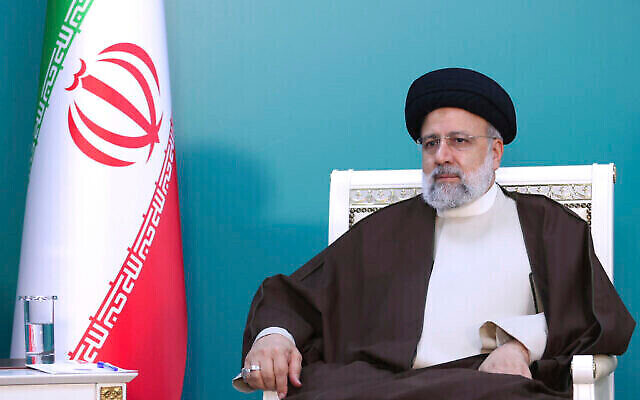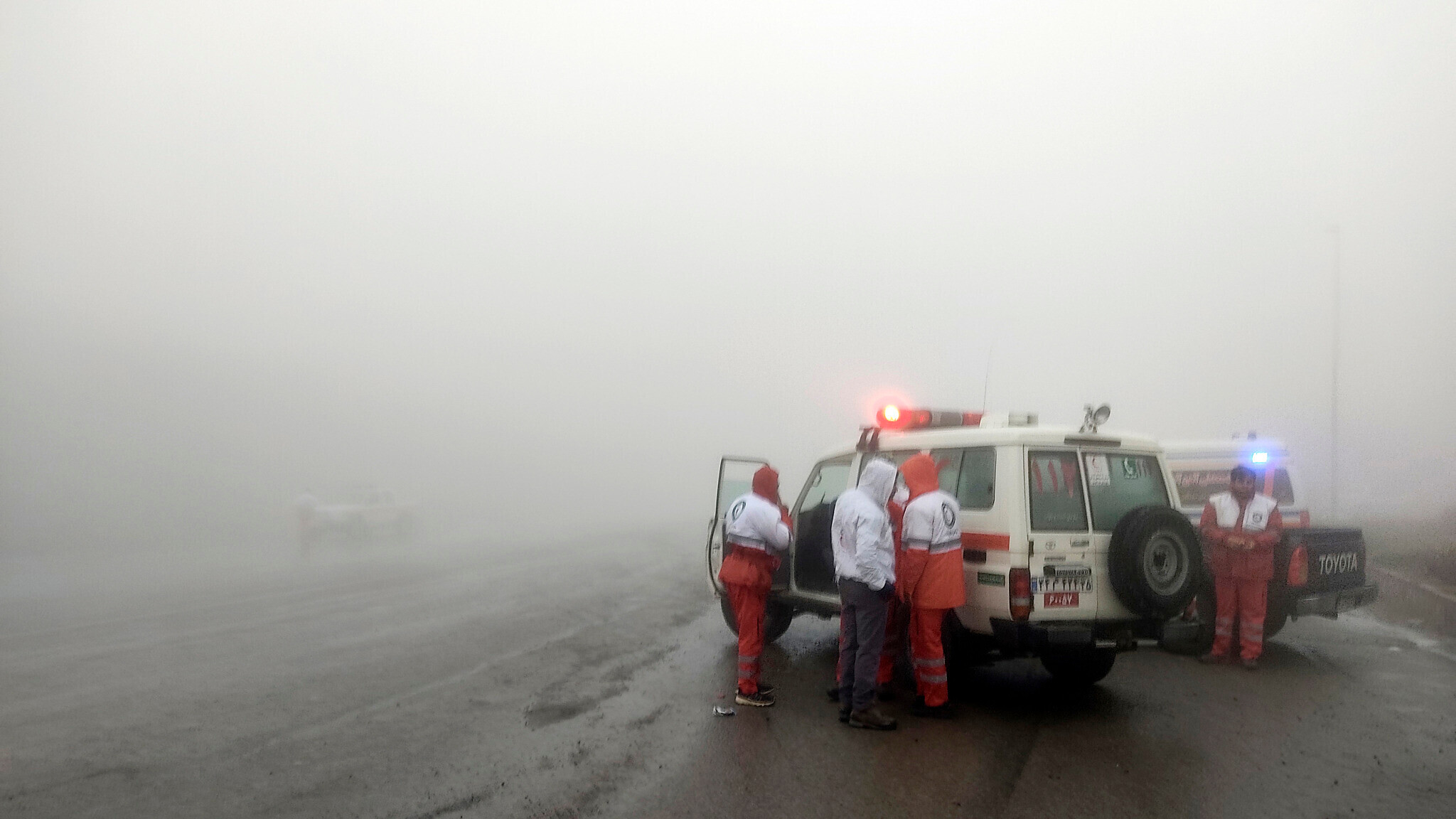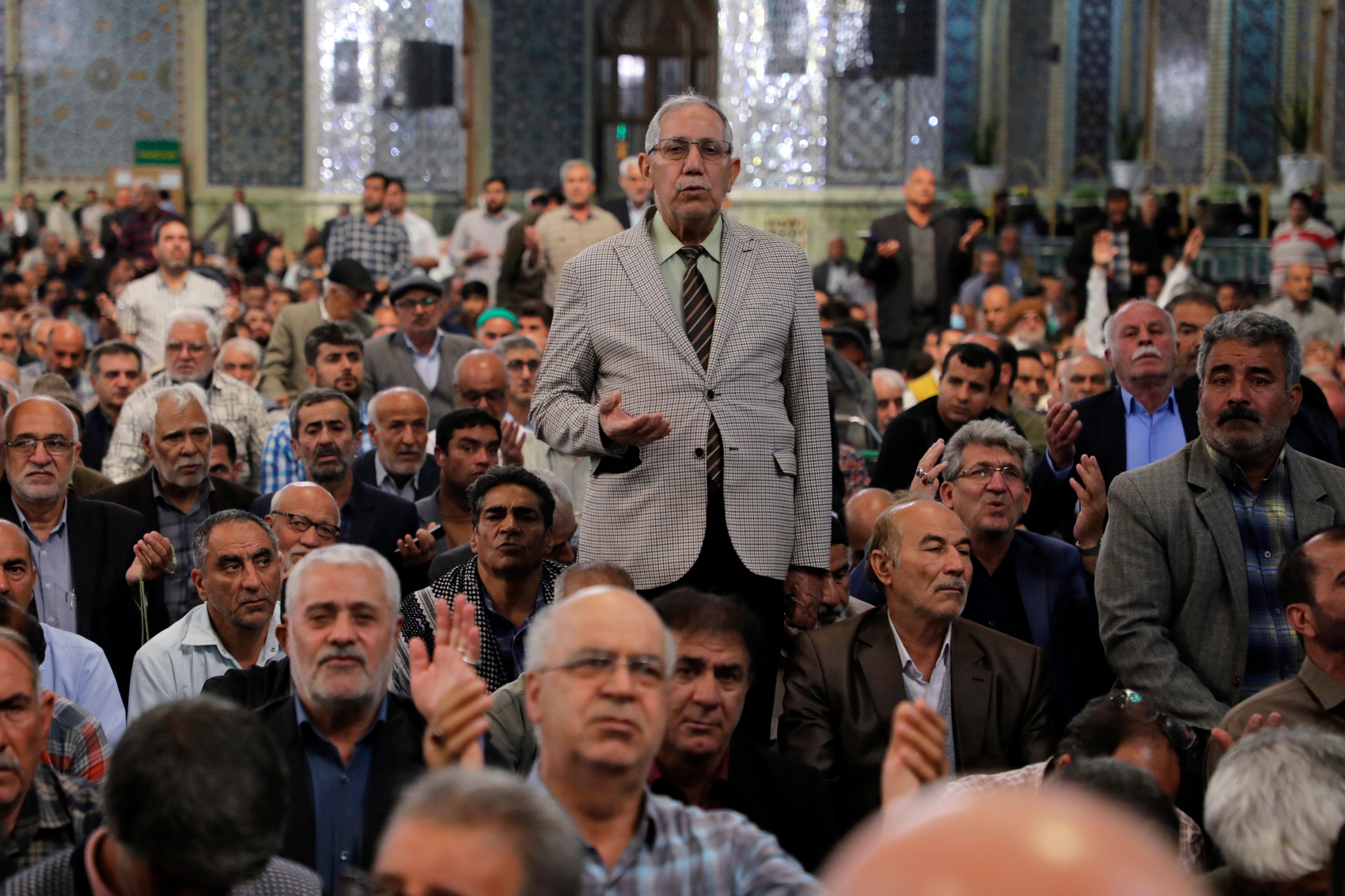Iran’s Raisi confirmed dead in helicopter crash near Azerbaijan border
Officials declare deaths of president and foreign minister after lengthy overnight search in difficult conditions; Hamas conveys ‘deepest condolences’ to the Iranian government.

(THE TIMES OF ISRAEL) Iranian President Ebrahim Raisi, a hardliner long seen as a potential successor to Supreme Leader Ayatollah Ali Khamenei, was killed in a helicopter crash in a mountainous northwestern region near the Azerbaijan border, officials and state media said on Monday.
The charred wreckage of the helicopter, which crashed on Sunday carrying Raisi and Foreign Minister Hossein Amir-Abdollahian, along with seven others, was found early on Monday after a 15-hour search in foggy weather conditions.
“With the discovery of the crash site, no signs of life have been detected among the helicopter’s passengers,” the head of Iran’s Red Crescent, Pirhossein Kolivand, told Iranian state television.
The deaths of all those onboard were later confirmed in a statement on social media by Vice President Mohsen Mansouri, who posted a Quranic verse used to express condolences.
In an official statement, the Iranian government said on Monday that it would continue to operate “without the slightest disruption.”
“We assure the loyal nation that the path of service will continue with the tireless spirit of Raisi,” said the statement.

State television reported that images from the site showed the aircraft slammed into a mountain peak, and Fars news agency shared drone images of what it said was the helicopter wreckage, although there was no official word on the cause of the crash.
According to the state-run IRNA news agency, Raisi had been flying in a US-made Bell 212 helicopter.
Condolence messages poured in from Iran’s allies and proxies on Monday morning.
Palestinian terror group Hamas conveyed “deepest condolences and solidarity” to Supreme Leader Ayatollah Ali Khamenei, the Iranian government and the Iranian people for “this immense loss.”
It praised the deceased Iranian leaders for supporting the Palestinian cause and its “resistance against Israel,” and expressed confidence that Iran’s “deep-rooted institutions” will enable it to overcome “the repercussions of this great loss.”
In a statement on X, formerly Twitter, Mohammed Ali Al-Houthi, the head of the Iran-backed Houthi Supreme Revolutionary Committee, sent his condolences “to the Iranian people, the Iranian leadership, and the families of President Raisi and the accompanying delegation on their reported martyrdom.”

Raisi, 63, was elected president in 2021, and since taking office ordered a tightening of morality laws, oversaw a bloody crackdown on anti-government protests and pushed hard in nuclear talks with world powers.
Before becoming president, Raisi held various positions inside the judiciary under the purview of Iranian Supreme Leader Ayatollah Ali Khamenei. As a prosecutor, and at the end of the Iran-Iraq War in 1988, he sat on the committee that sentenced thousands of political prisoners to death.
The executions earned him the moniker “Butcher of Tehran,” and he was subsequently subjected to sanctions by the United States and to condemnation by the United Nations and international human rights organizations.
From 2006 until his death, Raisi served on the Assembly of Experts, a body that appoints and supervises the supreme leader.
Khamenei, who holds ultimate power with a final say on foreign policy and Iran’s nuclear program, had earlier sought to reassure Iranians, saying there would be no disruption to state affairs.

Raisi’s convoy had included three helicopters, and the other two had “reached their destination safely,” said the Tasnim news agency.
Expressions of concern and offers of help came from abroad, including Iraq, Kuwait, Qatar, Saudi Arabia, Syria, Russia, China and Turkey, as well as from the European Union which activated its rapid response mapping service to aid in the search effort. US President Joe Biden had also been briefed on the crash, a US official said on condition of anonymity.
Possible successor to Khamenei
The crash came at a time of growing dissent within Iran over an array of political, social and economic crises. Iran’s clerical rulers have faced international pressure over Tehran’s nuclear program and its deepening military ties with Russia during the war in Ukraine.
In Iran’s dual political system, split between the clerical establishment and the government, it is Raisi’s 85-year-old mentor Khamenei, supreme leader since 1989, who holds decision-making power on all major policies.
For years, many have seen Raisi as a strong contender to succeed Khamenei, who has endorsed Raisi’s main policies.
Raisi’s victory in a closely managed election in 2021 brought all branches of power under the control of hardliners, after eight years when the presidency had been held by pragmatist Hassan Rouhani and a nuclear deal was negotiated with powers including Washington.
However, Raisi’s standing may have been dented by widespread protests against clerical rule and a failure to turn around Iran’s economy, hamstrung by Western sanctions.
Raisi had been at the Azerbaijani border on Sunday to inaugurate the Qiz-Qalasi Dam, a joint project. Azerbaijan’s President Ilham Aliyev, who said he had bid a “friendly farewell” to Raisi earlier in the day, had offered assistance in the rescue.

comments